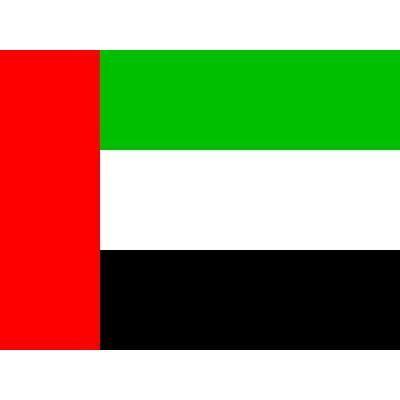Test


Business Type: Private
Institute Type:
Age Range: 19 Plus
Gender: Mix
Curriculum:
Number of Students: 2000
Percentage of International students: 40%
Country: United Arab Emirates
City: Ras Al Khaimah
International Airports: Dubai International, Sharjah
Accommodation: $400
Transport: $100
Food: $250
Courses: Principle of Management, Business Communication
| Course Name | Duration | Minimum Age | Level | Fees | Intake | More Details |
|---|---|---|---|---|---|---|
| BSc Electrical and Electronic Engineering | 3 Years | 19 Plus | 6 | AED 29500 | January and September | |
| BSc Cyber Security | 3 Years | 19 Plus | 6 | AED 29500 | January and September | |
| BSc Computer Science | 3 Years | 19 Plus | 6 | AED 29500 | January and September | |
| BA Accounting and Finance | 3 Years | 19 Plus | 6 | AED 29500 | January and September | |
| BA Business Studies | 3 Years | 19 Plus | 6 | AED 29500 | September and January | |
| MSc Cyber Security | 12-15 months | 19 Plus | 7 | AED 49000 | January and September | |
| MBA | 12-15 months | 19 Plus | 7 | AED 49000 | September |
| Visa Name | Documents Needed | Visa Application Fees |
|---|---|---|
| Short Visit | Offical Letter from the School Receipt of Accommodation booking |
£95 |
The UAE’s educational system is split into three general categories:
Quality can vary significantly; however, there are some very strong schooling options available, at every level, in the Emirates. Within Gulf countries, UAE schoolchildren ranked highest, and 45th worldwide, in a global school rankings list compiled in 2015.
State schools generally have four levels:
Education in the UAE all the way through secondary school is universal, free (in public schools), and compulsory for Emirati children. Equally important to know, state schools are gender-segregated. Although recent changes have allowed expat children to pay to enroll in state schools, the language of instruction is Arabic, and many expats choose to enroll their kids in private schools.
Education throughout the UAE is regulated by a number of different bodies. On a federal level, the Ministry of Education (MOE) sets admissions standards, graduation requirements, and curricula; within each Emirate, and especially in the bigger emirates, there are individual regulatory bodies, such as the Abu Dhabi Department of Education and Knowledge (ADEK) or Dubai’s Knowledge and Human Development Authority (KHDA).
Because of this, significant educational differences can exist between different emirates. Private schools in Abu Dhabi and Dubai are supervised by ADEK and KHDA, but not the Ministry of Education. In fact, private schools throughout the country follow the guidelines set by the MOE but are not under direct government supervision.
Country Name: United Arab Emirates
Capital: Abu Dhabi
Population: 9.5 Million
Currency: Dirham
Monthly Maintenance: $500

Life in Country:
The UAE has a very significant expat community, which makes up for almost 50% of the total population. Of the people living in the UAE a vast majority (95%) are Muslim. The majority of expats are drawn here as a result of the tax-free lifestyle on offer and for those on an international wage the standard of living is very high. Private education facilities, fantastic shopping and numerous entertainment options make this an interesting and enjoyable place in which to raise your family.
Last year saw a dramatic decrease in the cost of living in many cities in the UAE and in the 2012 Mercer cost of living survey no cities in the UAE featured in the top ten most expensive cities in which to live; Abu Dhabi (76) overtook Dubai (94) in the rankings and became the most expensive city in the United Arab Emirates.
One of the biggest benefits to expatriates of living in Dubai is the low taxation and this has a positive impact on the cost of a number of items, including vehicles, electronic goods and local produce. Utilities are also slightly cheaper here than they are in many countries as a result of government subsidies on electricity, water and gas.
As with many cities, accommodation will represent the biggest cost that expatriates face but, according to Mercer, accommodation costs in the region are decreasing: “The trend of falling accommodation costs continues across the Middle East region, driving the cities down the ranking along with the cost of living for expats. Dubai in particular is witnessing a drastic reduction in accommodation costs as the supply of property keeps flooding the rental market.”
Expatriates living in the UAE who search out luxury goods or international brand names will also need to be prepared to pay higher prices for those items.
Our relocation guide contains detailed living costs across different types of lifestyles and living options. Because our guides are written by expats who live and work in the countries themselves, you can be assured that the information is accurate, reliable and up to date.
The official language of the UAE is Arabic but English is widely spoken and the majority of expats living in the UAE do not experience any difficulties communicating with the locals.
Sub-tropical and arid. Temperatures range from over 50 degrees C in summer (April to September) through to -15 degrees in the evenings. Sand storms occasionally occur.
In recent years, through a program that is known as Emiratisation, the UAE government has placed significant pressure of companies to assist them to reduce unemployment amongst nationals. This has led to a reduction in opportunities for foreign workers and it can be very difficult to secure work. The majority of expats who are based here are on international contracts that were secured whilst in their home countries.